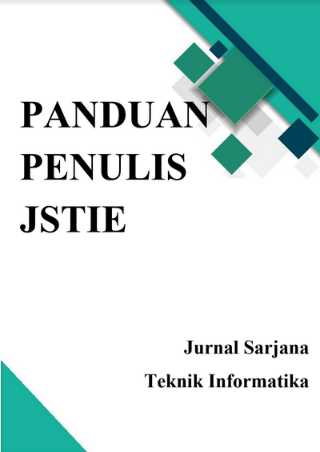PENGEMBANGAN WEB SERVICE POS MIKRO BERBASIS SOFTWARE AS A SERVICE DENGAN ARSITEKTUR MULTITENANCY PADA BISNIS WARALABA
DOI:
https://doi.org/10.12928/jstie.v5i1.10811Abstract
Usaha Mikro Kecil dan Menengah (UMKM) merupakan tulang punggung perekonomian bangsa. Di Indonesia terdapat sekitar 57,9 juta pelaku UMKM. Usaha mikro cukup mendominasi, ada sekitar 22 juta pedagang kaki lima (PKL) dengan 2,5 juta di antaranya adalah pedagang bakso. Dalam menjalankan usahanya UMKM tidak hanya secara individu atau personal, melainkan juga mengemasnya dalam bentuk waralaba. Pengelolaan bisnis yang baik dan profesional menjadi harapan setiap pelaku UMKM. Point of Sale (POS) dapat digunakan sebagai pendukung untuk membantu mengontrol dan mengelola usahanya. Aplikasi POS yang ada saat ini belum dapat mengakomodasi bisnis waralaba, sehingga apabila pewaralaba memiliki cabang di lokasi yang harga bahan baku berbeda dengan pusat tidak bisa menyesuaikan harga.
Dalam penelitian ini pengumpulan data menggunakan metode observasi dan wawancara dengan obyek yaitu usaha es krim paman sam di palembang. Tahap pengembangan meliputi analisis kebutuhan user, pembuatan use case diagram, class diagram, entity relationship diagram, implementasi, dan pengujian. Implementasi aplikasi web service menggunakan bahasa pemrograman PHP dengan framework Laravel dan database MySQL sebagai media penyimpanan data. Pengujian yang dilakukan yaitu menggunakan pengujian unit.
Hasil dari penelitian yang telah dilakukan yaitu web service pos mikro berbasis software as a service dengan arsitektur multinenancy pada bisnis waralaba dengan kemampuan dapat digunakan untuk banyak penyewa dan mampu mengakomodasi bisnis waralaba serta mumudahkan pemilik usaha untuk memantau usahanya.
Kata Kunci: Bisnis Waralaba, Point of Sale, POS Mikro, UMKM.
References
Hendry. 2010. Membangun Aplikasi Point Of Sale dengan vb 6.0, Mysql dan php. Jakarta. PT. Elex Media Komputindo.
Jeremy. 2015. Bisnis Waralaba Bertumbuh Mencapai 20% Tahun 2015. http://beritadaerah.co.id/2015/08/27/bisnis-waralaba-bertumbuh-mencapai-20-tahun-2015/, Diakses pada tanggal 12 Desember 2015.
Sarna, D.E.Y., 2010. Implementing and Developing Cloud Computing Applications. New York: CRC Press. Tersedia di: http://ca.chitkara.edu.in/cloudsecurity/r-iadcc.pdf.
Axopos. 2012. Point Of Sale, http://www.axopos.com/article/point-ofsale-71.html, (diakses 22 November 2015).
Chappel, D.A. & Jewell, T., 2002. Java Web Services, C.A: O’Reilly Media. Tersedia di: http://filepi.com/i/jH2WfEZ.
Downloads
Published
Issue
Section
License
License and Copyright Agreement
In submitting the manuscript to the journal, the authors certify that:
- They are authorized by their co-authors to enter into these arrangements.
- The work described has not been formally published before, except in the form of an abstract or as part of a published lecture, review, thesis, or overlay journal. Please also carefully read Journal Posting Your Article Policy.
- The work is not under consideration for publication elsewhere.
- The work has been approved by all the author(s) and by the responsible authorities – tacitly or explicitly – of the institutes where the work has been carried out.
- They secure the right to reproduce any material that has already been published or copyrighted elsewhere.
- They agree to the following license and copyright agreement.
Copyright
Authors who publish with Jurnal Sarjana Teknik Informatika agree to the following terms:
- Authors retain copyright and grant the journal right of first publication with the work simultaneously licensed under a Creative Commons Attribution License (CC BY-SA 4.0) that allows others to share the work with an acknowledgement of the work's authorship and initial publication in this journal.
- Authors are able to enter into separate, additional contractual arrangements for the non-exclusive distribution of the journal's published version of the work (e.g., post it to an institutional repository or publish it in a book), with an acknowledgement of its initial publication in this journal.
- Authors are permitted and encouraged to post their work online (e.g., in institutional repositories or on their website) prior to and during the submission process, as it can lead to productive exchanges, as well as earlier and greater citation of published work.







